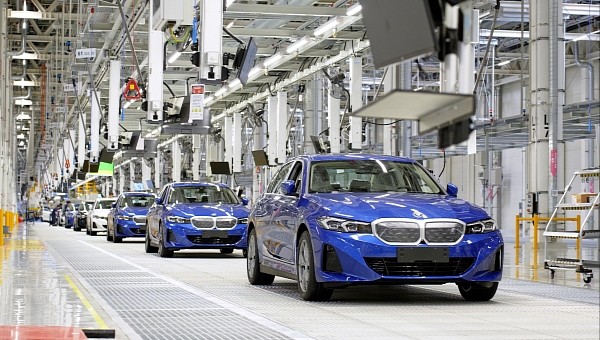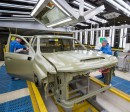The chip shortage has wreaked havoc in the automotive industry, especially as foundries focused mostly on their main source of revenue.
2020 changed the trends in the semiconductor industry completely, with the demand for phones and PCs skyrocketing overnight, especially as a substantial part of the world started working remotely.
The tech world, therefore, accounted for a substantial part of chip orders, and most of the capacity was aimed at PCs and phones. Car manufacturers ended up struggling with a severe shortage that forced them to temporarily stop their production, ship cars without certain non-critical systems, or build vehicles and keep them in parking lots, hoping the chip inventory would improve.
Now the trends are completely changing, and ironically, chipmakers hope the auto sector would keep their profits at the insane levels reached in the last few years.
The demand for PCs and phones is slowing down, and the drops that are recorded in these industries are producing a decline in the semiconductor business as well.
Great Hill Capital Chairman Thomas Hayes says the trend is fairly obvious right now: chipmakers are investing aggressively in capacity relocation, as the automotive sector is the one bringing home the bacon right now.
Semiconductor manufacturers have already created an excess supply in terms of chips aimed at phones and PCs, so their only option was to move to cars. The demand on this front remains strong, Hayes explains, and as a result, chipmakers too hope they would be able to secure as many orders as possible.
Capacity relocation is eventually supposed to produce the change that each and every one of us is waiting for. With the chip inventory returning to normal, carmakers should be able to produce as many units as possible, eventually being able to cut prices as well.
Hayes says that in the United States, the used car maker is likely to drop significantly, especially as carmakers could end up selling cars at sticker or even below. The offered incentives will make buying a new car much more attractive, especially as customers would no longer have to struggle with limited supply.
For the time being, this highly anticipated return to pre-2020 car production doesn’t seem to be happening. Just earlier this week, Skoda announced that it’s temporarily stopping assembly lines once again, citing the limited chip inventory as the main reason.
Japanese carmaker Toyota also confirmed that the chip shortage is going to remain a problem throughout 2023, with the impact to eventually generate a 10 percent drop in its yearly production target.
Hayes’ forecast is certainly optimistic, especially as this capacity relocation is supposed to finally bring to an end the ridiculous waiting times for new cars.
Whether this is expected to happen this year is something that remains to be seen, as customers are still being told to wait for more than 12 months when ordering a new vehicle.
The tech world, therefore, accounted for a substantial part of chip orders, and most of the capacity was aimed at PCs and phones. Car manufacturers ended up struggling with a severe shortage that forced them to temporarily stop their production, ship cars without certain non-critical systems, or build vehicles and keep them in parking lots, hoping the chip inventory would improve.
Now the trends are completely changing, and ironically, chipmakers hope the auto sector would keep their profits at the insane levels reached in the last few years.
The demand for PCs and phones is slowing down, and the drops that are recorded in these industries are producing a decline in the semiconductor business as well.
Great Hill Capital Chairman Thomas Hayes says the trend is fairly obvious right now: chipmakers are investing aggressively in capacity relocation, as the automotive sector is the one bringing home the bacon right now.
Semiconductor manufacturers have already created an excess supply in terms of chips aimed at phones and PCs, so their only option was to move to cars. The demand on this front remains strong, Hayes explains, and as a result, chipmakers too hope they would be able to secure as many orders as possible.
Capacity relocation is eventually supposed to produce the change that each and every one of us is waiting for. With the chip inventory returning to normal, carmakers should be able to produce as many units as possible, eventually being able to cut prices as well.
Hayes says that in the United States, the used car maker is likely to drop significantly, especially as carmakers could end up selling cars at sticker or even below. The offered incentives will make buying a new car much more attractive, especially as customers would no longer have to struggle with limited supply.
For the time being, this highly anticipated return to pre-2020 car production doesn’t seem to be happening. Just earlier this week, Skoda announced that it’s temporarily stopping assembly lines once again, citing the limited chip inventory as the main reason.
Japanese carmaker Toyota also confirmed that the chip shortage is going to remain a problem throughout 2023, with the impact to eventually generate a 10 percent drop in its yearly production target.
Hayes’ forecast is certainly optimistic, especially as this capacity relocation is supposed to finally bring to an end the ridiculous waiting times for new cars.
Whether this is expected to happen this year is something that remains to be seen, as customers are still being told to wait for more than 12 months when ordering a new vehicle.






